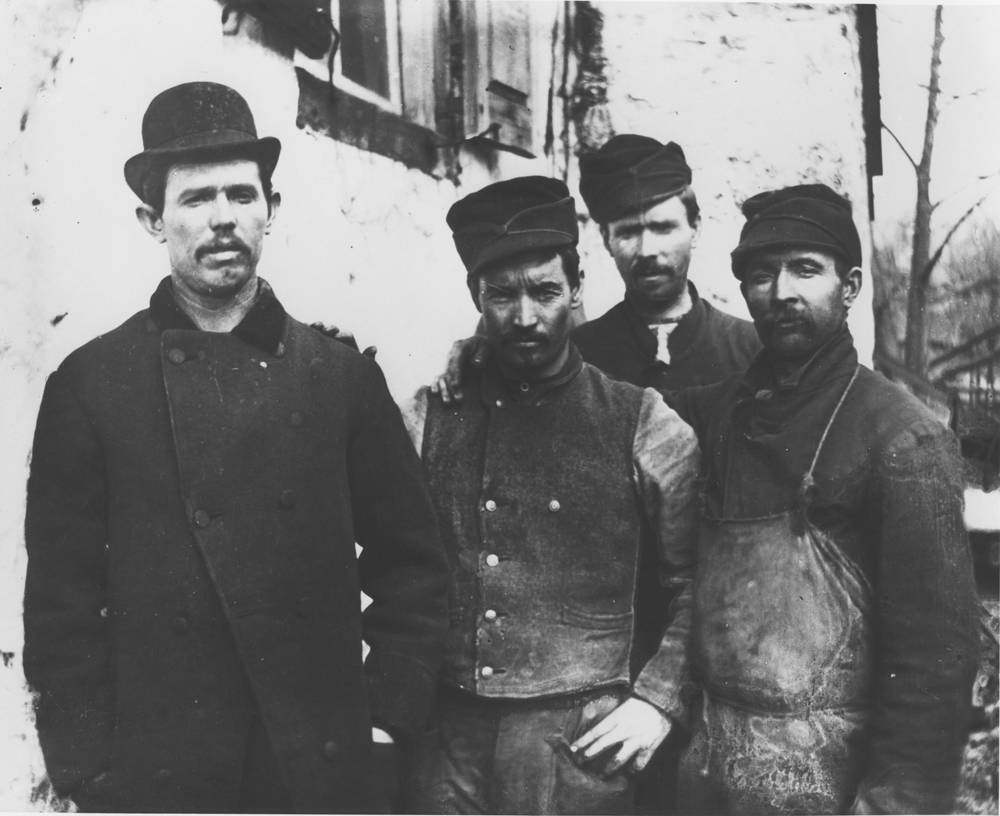In 1820, the DuPont Company had 50 individuals entered into their employee ledgers hwo were not salaried powder yard workers. DuPont paid these people to eprform specific duties that in some way related to powder yard operations.
The following is a list of jobs that non-powder yard workers performed:
Cutting, peeling, and selling willows — Willow trees were used to make charcoal, one of the three primary ingredients in black powder. DuPont hired laborers to cut willow trees, haul the wood, and peel off the bark so it could be turned to charcoal. There are references throughout the employee records to people who participated in this process.
Farrier — Moving product and materials required horses. A farrier would have been hired to care for and place shoes on the hooves of workhorses.
Hauling — DuPont hired numerous people to carry products and materials. This would have included everything from moving raw materials into the yards (such as willows for making charcoal) to transporting finished powder to the docks in Wilmington for shipping. Titus Mosley, listed in the ledger as "hauler" and "odd jobs," billed the company over $2,100 for work he completed in 1820. This number, however, could be misleading since Mr. Mosley, as an independent worker, would have incurred all expenses for the upkeep of his hauling equipment and horses. In addition, he may have hired other laborers to assist him.
Millwright — Millwrights usually built, repaired, and fabricated parts for machinery used in the mills. The millwright billed DuPont $1,900 in 1820, a large sum but like Titus Mosley, he would have had to pay for his own operating expenses. It is likely that the millwright maintained his own shop and hired his own assistants.
Merchants and salesmen — The company records include payment to individuals for such things as coal, hardware, paper goods, lumber, dry goods, liquor, and groceries. Payments for dry goods and groceries included paying off worker accounts to local merchants. These funds were reimbursed back to the company through payroll deductions.
Skilled labor and/or craftsmen — The skilled workers included in the ledgers are a nail maker, rope maker, brush maker, brick maker, and keg makers. These craftsmen were paid for each piece they produced and some likely had a crew of laborers they paid with the money they received from DuPont. Other skilled laborers in the Company books include a surveyor, blacksmith and wheelwright.
 WORKERS
WORKERS
